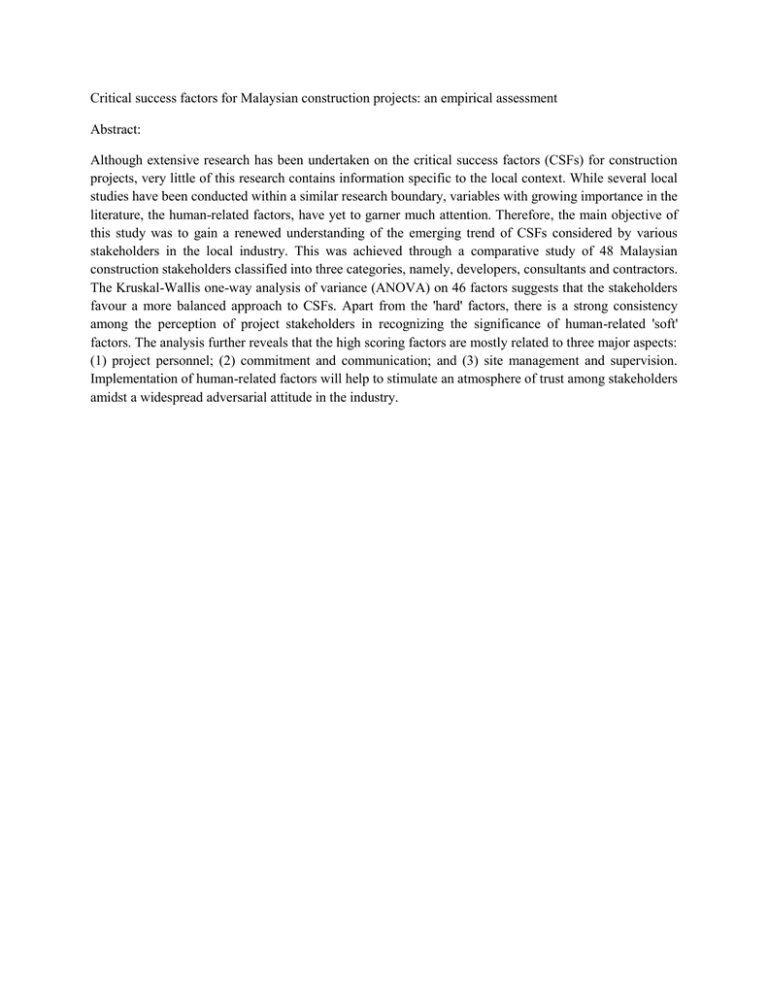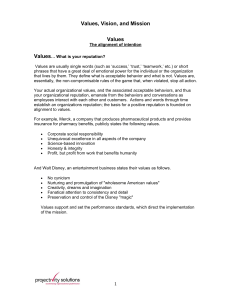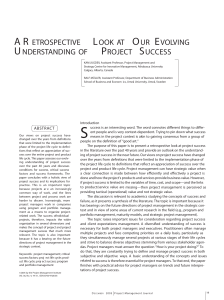Critical success factors for Malaysian construction projects: an empirical assessment Abstract:
advertisement

Critical success factors for Malaysian construction projects: an empirical assessment Abstract: Although extensive research has been undertaken on the critical success factors (CSFs) for construction projects, very little of this research contains information specific to the local context. While several local studies have been conducted within a similar research boundary, variables with growing importance in the literature, the human-related factors, have yet to garner much attention. Therefore, the main objective of this study was to gain a renewed understanding of the emerging trend of CSFs considered by various stakeholders in the local industry. This was achieved through a comparative study of 48 Malaysian construction stakeholders classified into three categories, namely, developers, consultants and contractors. The Kruskal-Wallis one-way analysis of variance (ANOVA) on 46 factors suggests that the stakeholders favour a more balanced approach to CSFs. Apart from the 'hard' factors, there is a strong consistency among the perception of project stakeholders in recognizing the significance of human-related 'soft' factors. The analysis further reveals that the high scoring factors are mostly related to three major aspects: (1) project personnel; (2) commitment and communication; and (3) site management and supervision. Implementation of human-related factors will help to stimulate an atmosphere of trust among stakeholders amidst a widespread adversarial attitude in the industry.





